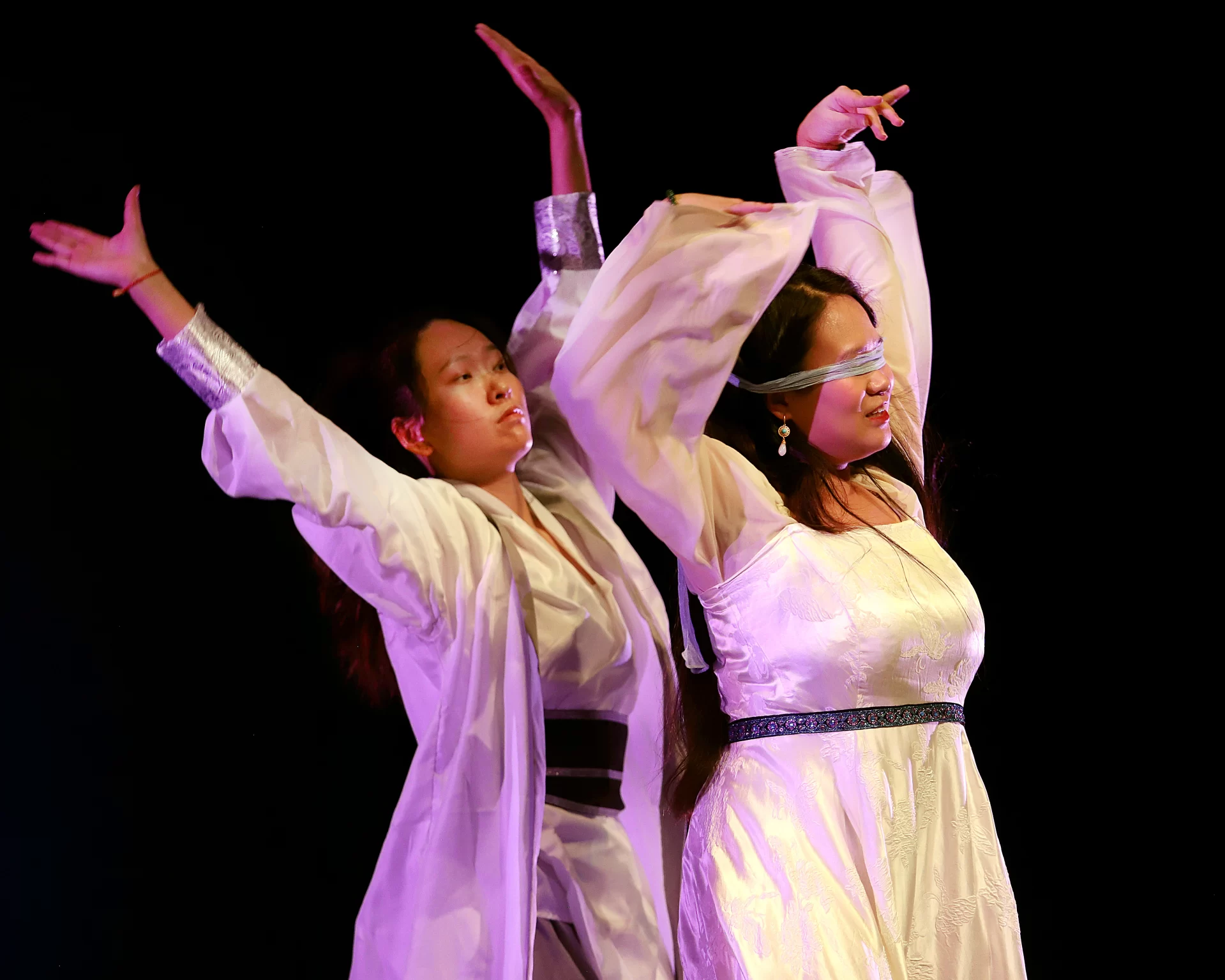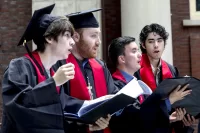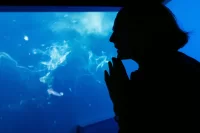
Bates receives $500,000 grant to fund major arts and technology project
Scheduled for a fall 2023 opening, the college’s new Immersive Media Studio — a focal point of a major new arts and technology project funded by a $500,000 grant from the Sherman Fairchild Foundation — will occupy a prime spot right at the center of the campus.
And the studio’s placement is no mistake; equipped with cutting edge sound, visual, and multimedia technology, the studio is meant to be a magnet pulling everyone from scientists to playwrights into collaboration.
Does a professor from the Department of Earth and Climate Sciences have an idea for a Short Term course where an installation could make sea level rise and glacial melt come alive for observers? The plan is that they’ll be able to find both the training and the tools to do that in the IMStudio. So will the theater major who dreams of a career on Broadway and wants to take the leap into fully virtual production design.
“This is a fantastic opportunity for the arts at Bates, and the possibilities are endless. Faculty are already doing groundbreaking creative work, and this grant will allow them to do so much more.”
Dean of the Faculty and Vice President for Academic Affairs Malcolm Hill.
Coming to the first floor of Coram Library, the IMStudio will serve as a tech-centric companion to the virtual reality and 3D hub of the VizLab down the hall.
The IMStudio will provide space on campus for faculty to create immersive sound composition performances and installations, as well as multimedia installations that weave together animation, sound, video projection, devised performance, drawing and visual media, and complex lighting, sound, and projection design.
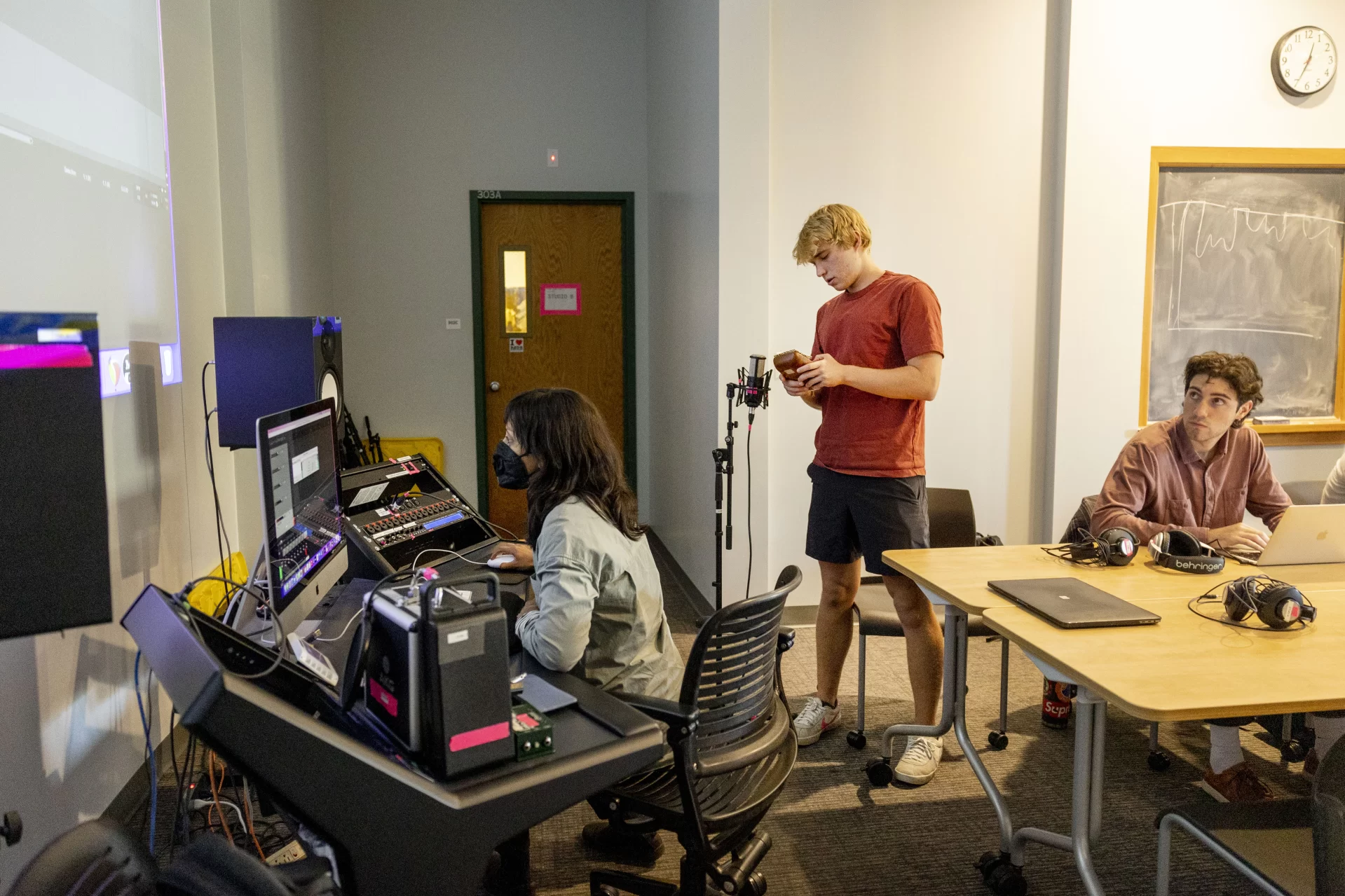
Students and faculty will create installations and performances inside its walls. The Bates Arts Collaborative (BAC), which developed the grant proposal, envisions faculty and students — and visiting artists in residence — reserving the room for several weeks at a time so that they can leave equipment and materials in place and learn the process and methods of immersive media.
The BAC has a multi-pronged approach to supporting students and faculty who engage in technology-based arts practices and education. Dubbed IMPACT 21st (Innovation, Media, Process, Arts, Collaboration, and Technology for the 21st century), the project seeks to deliver technology upgrades, including green technology; bring artists to campus to share their expertise; provide training to faculty in how to use new technology equipment and in developing new courses; and support students who wish to develop their own technology-based arts projects.
Supported by the $500,000 grant over four years, IMPACT 21st in the long term seeks to elevate the profile of the college’s arts education, attract new faculty and students, create new ways of practicing and learning and realize the interdisciplinary potential of the arts and other programs and departments on campus; and educate future leaders in the fields of film, audio, music and media production as well as the visual arts.
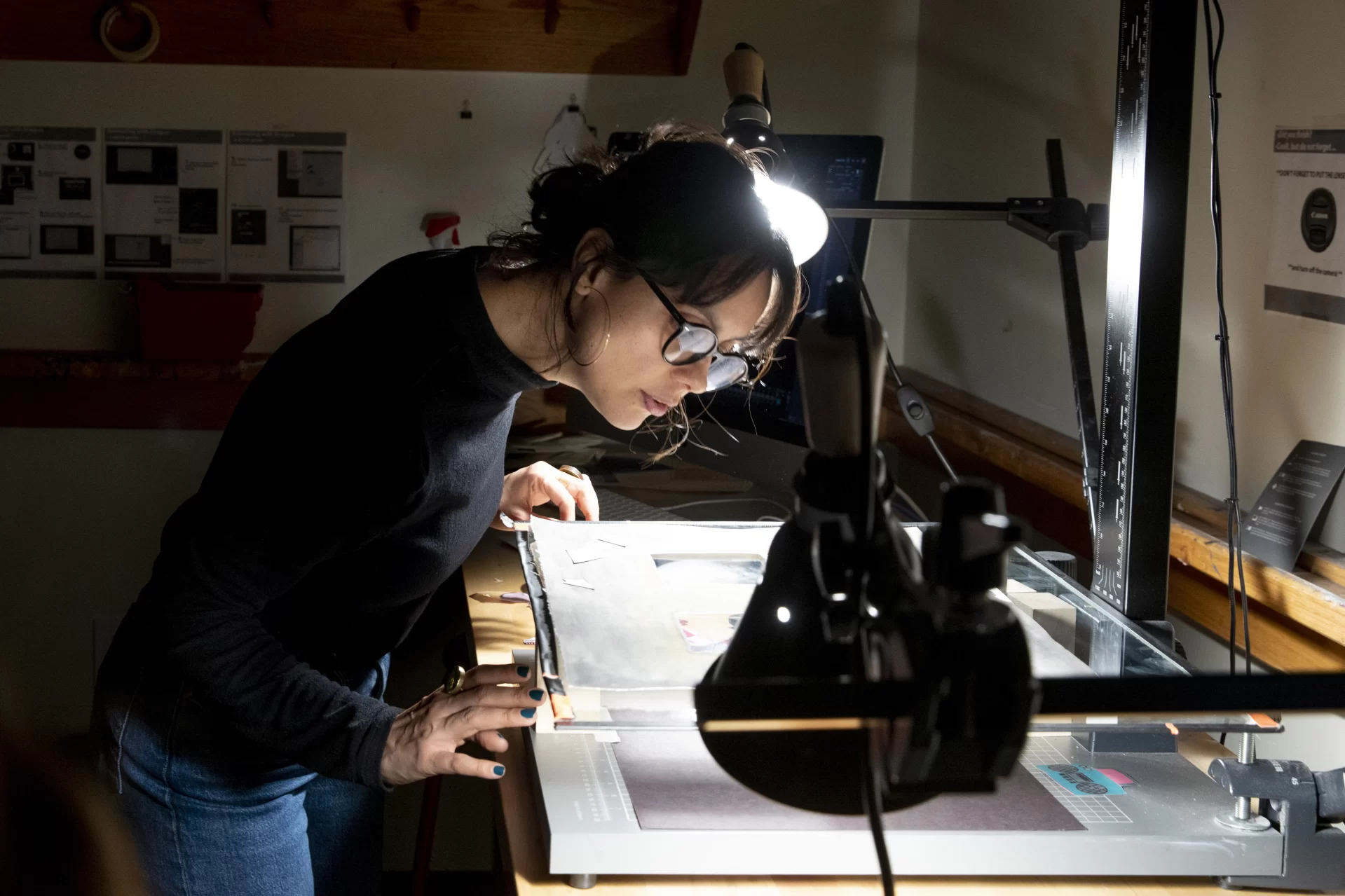
“This is a fantastic opportunity for the arts at Bates, and the possibilities are endless,” said Dean of the Faculty and Vice President for Academic Affairs Malcolm Hill. “Faculty are already doing groundbreaking creative work, and this grant will allow them to do so much more. The Bates Arts Collaborative put a lot of thought into this project, and what’s wonderful about one of the key needs they highlighted, the concept of an immersive media studio, is a bonus for all of our faculty.”
Renovation of the space in Coram is scheduled for summer, but in the meantime, there is work to be done, including spreading the word to stakeholders.
“One of the biggest things is also getting the community excited,” says Assistant Professor of Art and Visual Culture Carolina González Valencia, who serves on the BAC subcommittee that will manage grant activities, using the coming months to plan for the implementation of the proposal.
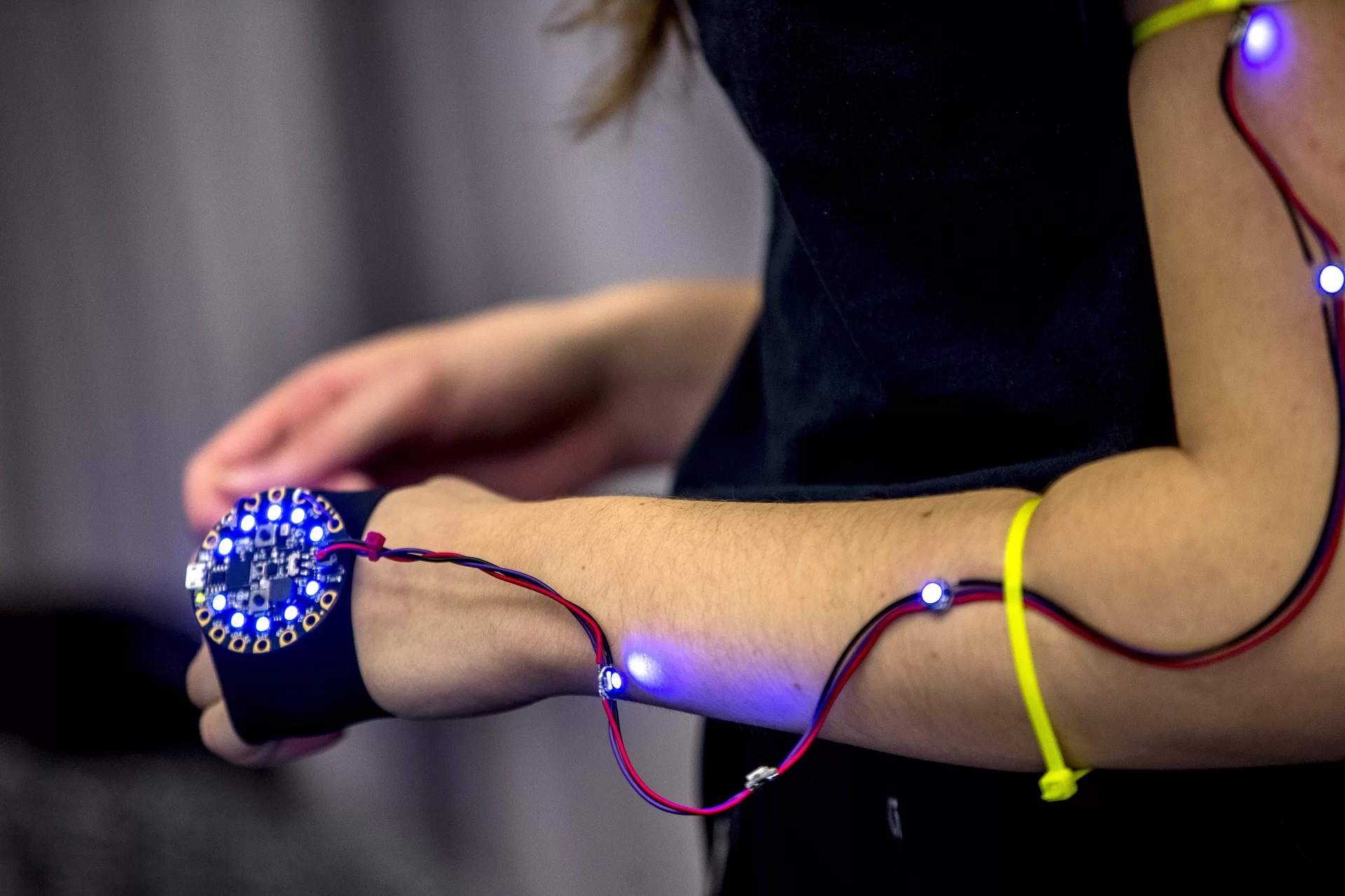
“Part of that is showing them the possibilities of what this space can bring to the community. We know that it could be a little abstract for some units and people who are not necessarily in the arts.”
For subcommittee member Tim Dugan, an assistant professor of theater, the promise of IMPACT 21st is to create more connections between the arts and the campus as a whole. “In the arts, it’s really easy to kind of stay in our own little area,” he says. “And so already, this is fostering all sorts of ideas and possibilities.”
They’re already bubbling up for him. “It’s funny,” he says. “Acting and directing, I can do that with just a couple of blocks, you know? But thinking about the IMStudio is making me want to do more acting on film, acting on green screens, more partnerships with dance. This is already shaking it up for me.”
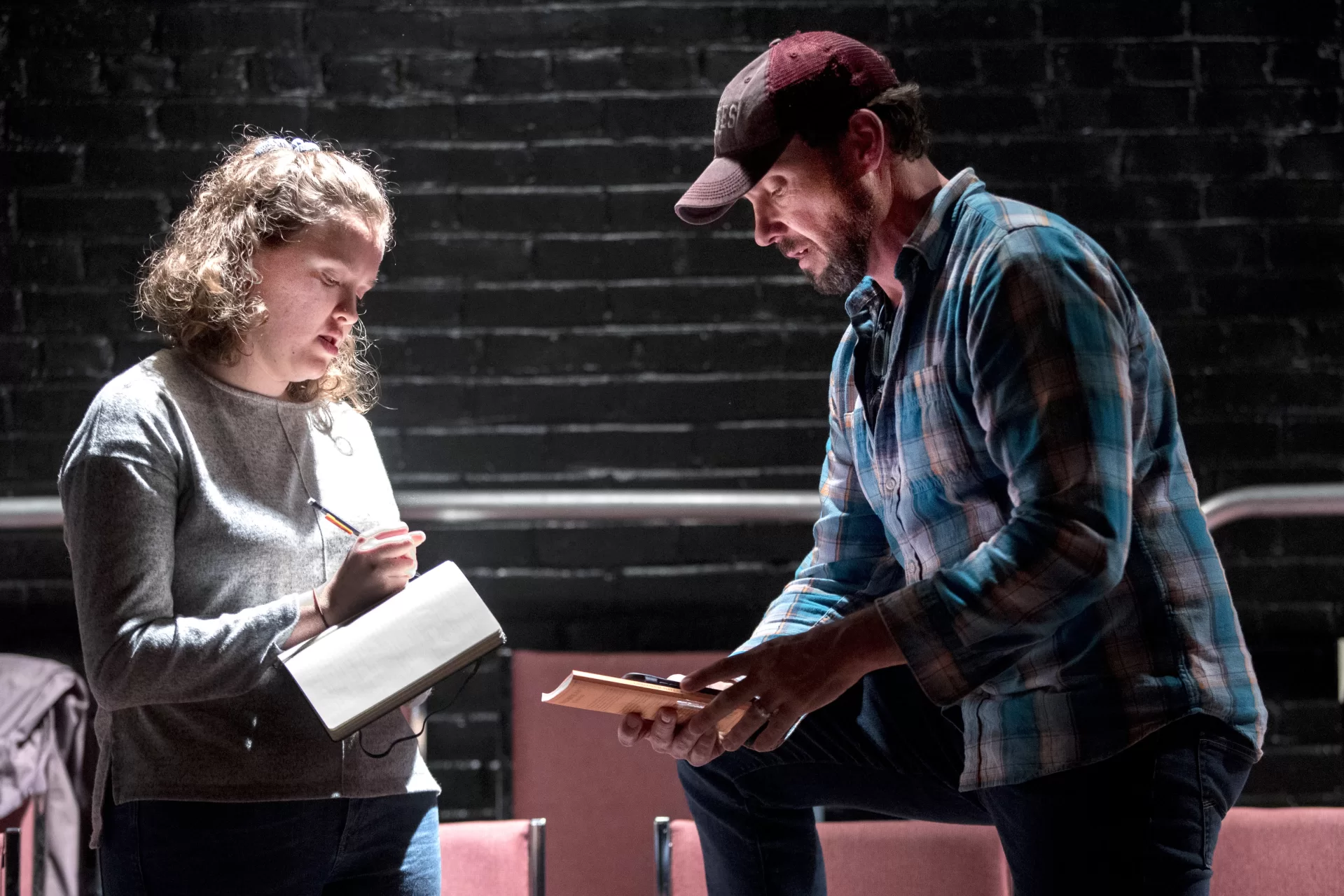
Joining Tim Dugan and Carolina González Valencia on the BAC subcommittee are Michael Reidy, senior lecturer in theater and managing director of theater and dance, Asha Tamirisa, assistant professor of music, Jamie Watkins, manager of the Digital Media Studio, and Rachel Wray, senior director of corporate and foundation relations.
